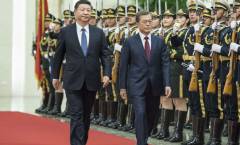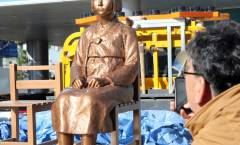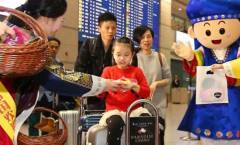“A good many Chinese people enjoy eating fried chicken with beer, while a number of South Koreans are big fans of mutton,” said South Korean President Park Geun-hye in Shanghai on September 4, hinting at the cultural – and culinary – influences each country has on the other. At least on the Chinese side of the Yellow Sea, the influence is great, with many Chinese people seemingly obsessed with South Korean culture. South Korean restaurants that feature samgyeobsal (barbecued pork belly) and bibimbap (rice mixed with vegetables, often served in a sizzling pot and topped with a fried egg) are a common sight throughout many Chinese cities, and training courses teaching how to cook South Korean dishes are becoming increasingly popular. Yet cuisine is only a small part of China’s infatuation with South Korean culture; from TV dramas to pop stars to cosmetics, many in China spend many of their waking moments trying to keep pace with South Korean culture. President Park knows this, and she is attempting to capitalize on the situation. After attending China’s September 3 Victory Day Parade, the South Korean president took part in a forum promoting Sino-Korean commercial cooperation in Shanghai the following day, the result of the meeting dozens of cooperative agreements forged between Chinese and South Korean companies, mainly focusing on the apparel […]
China & The World
Sep 11, 2015




